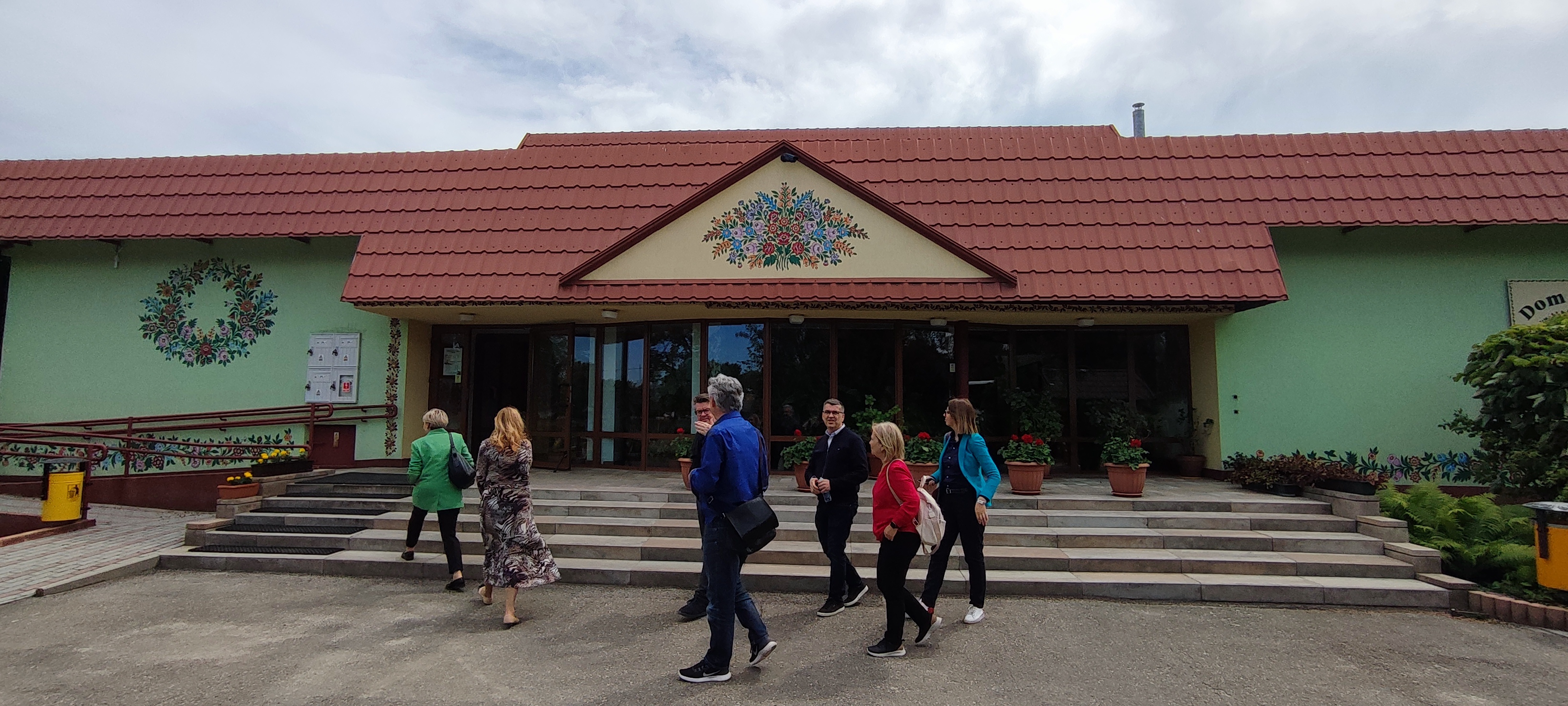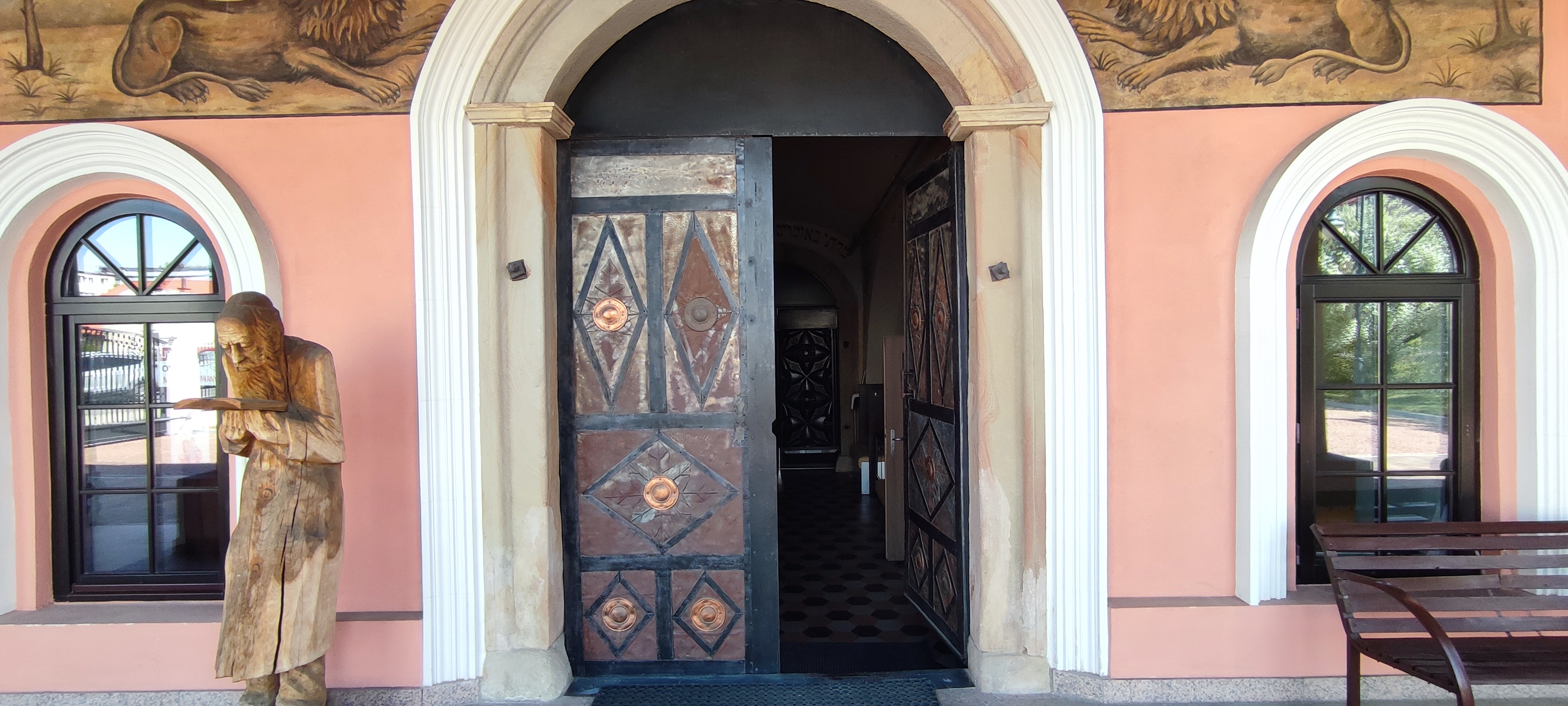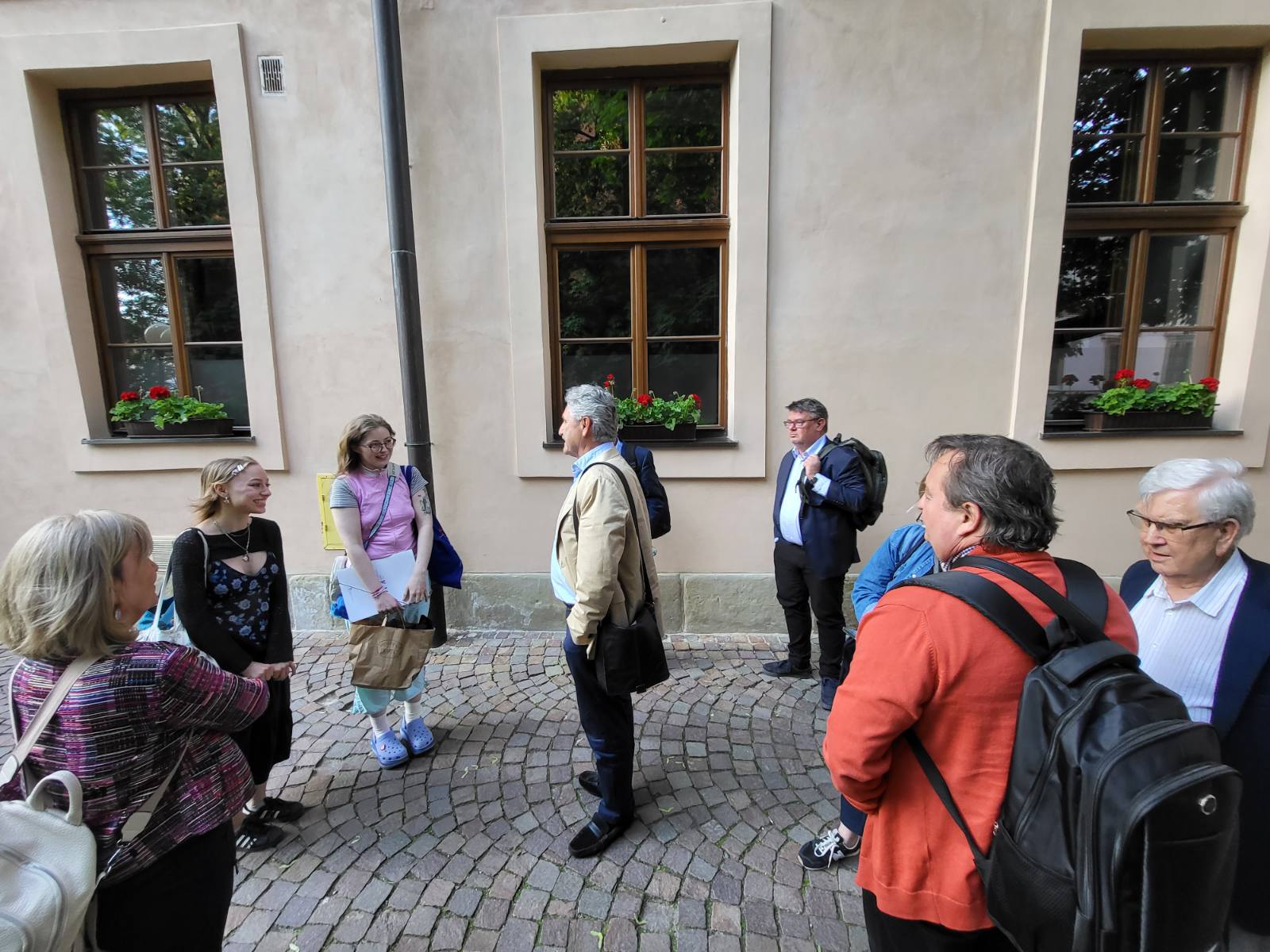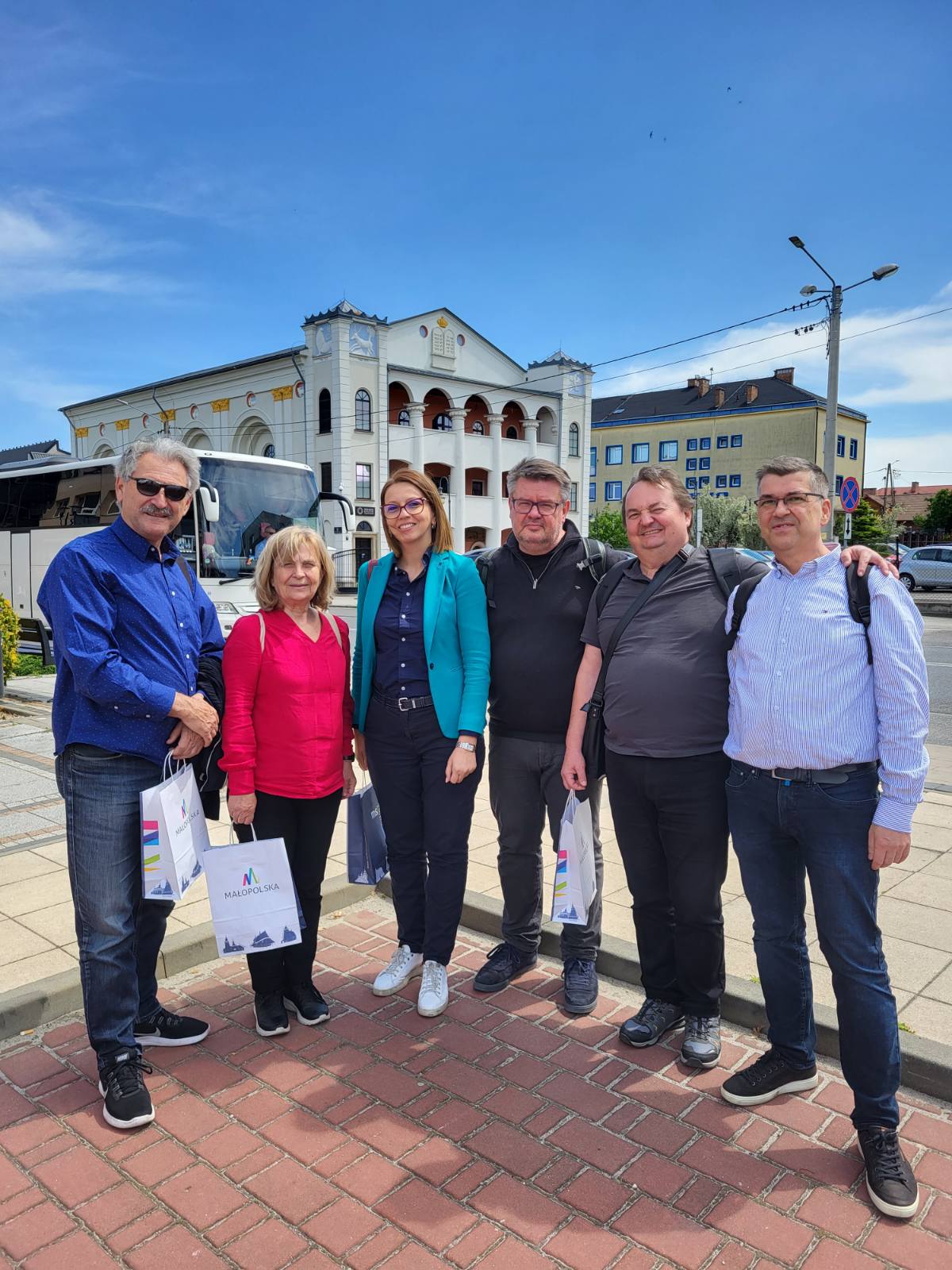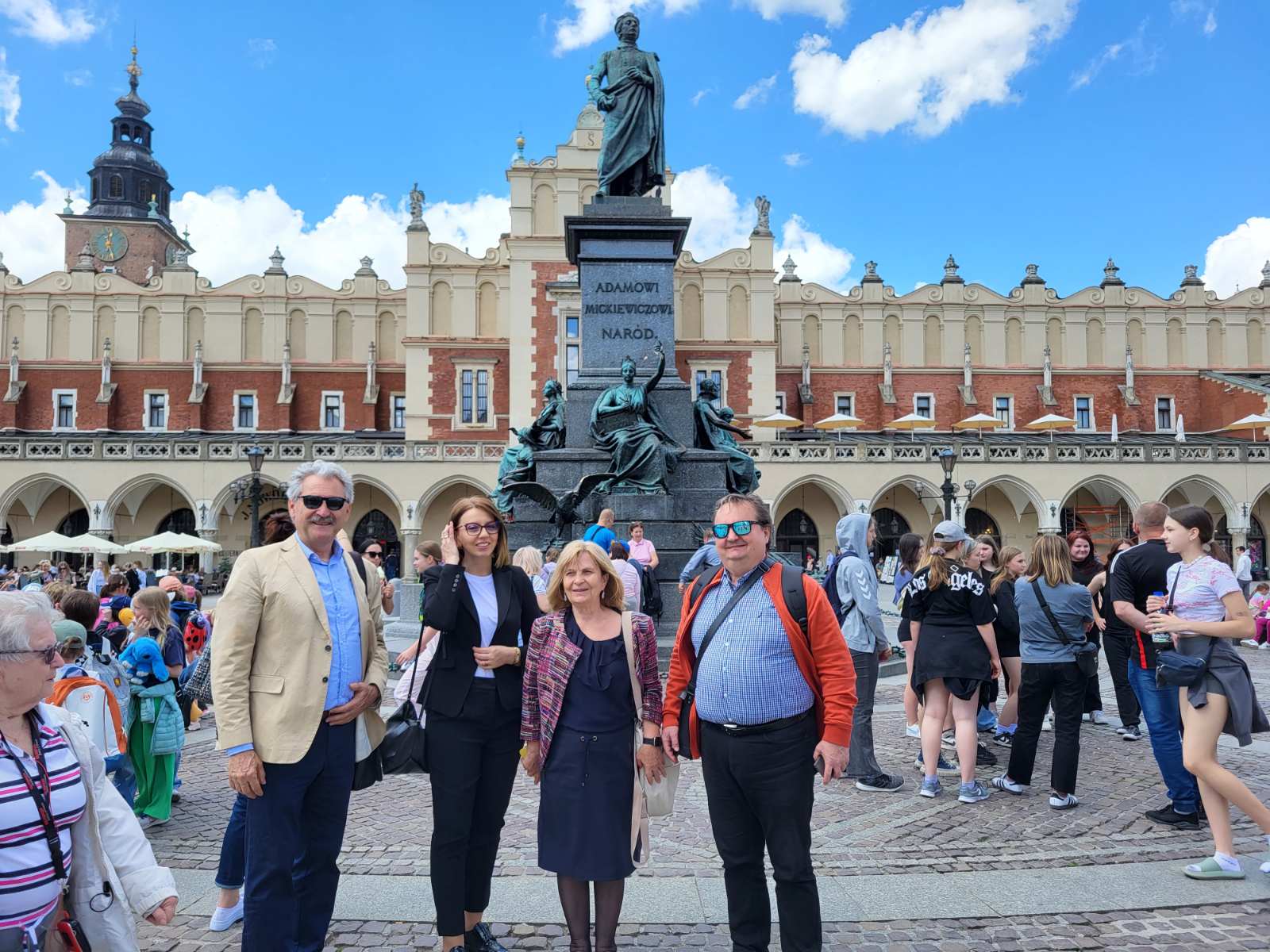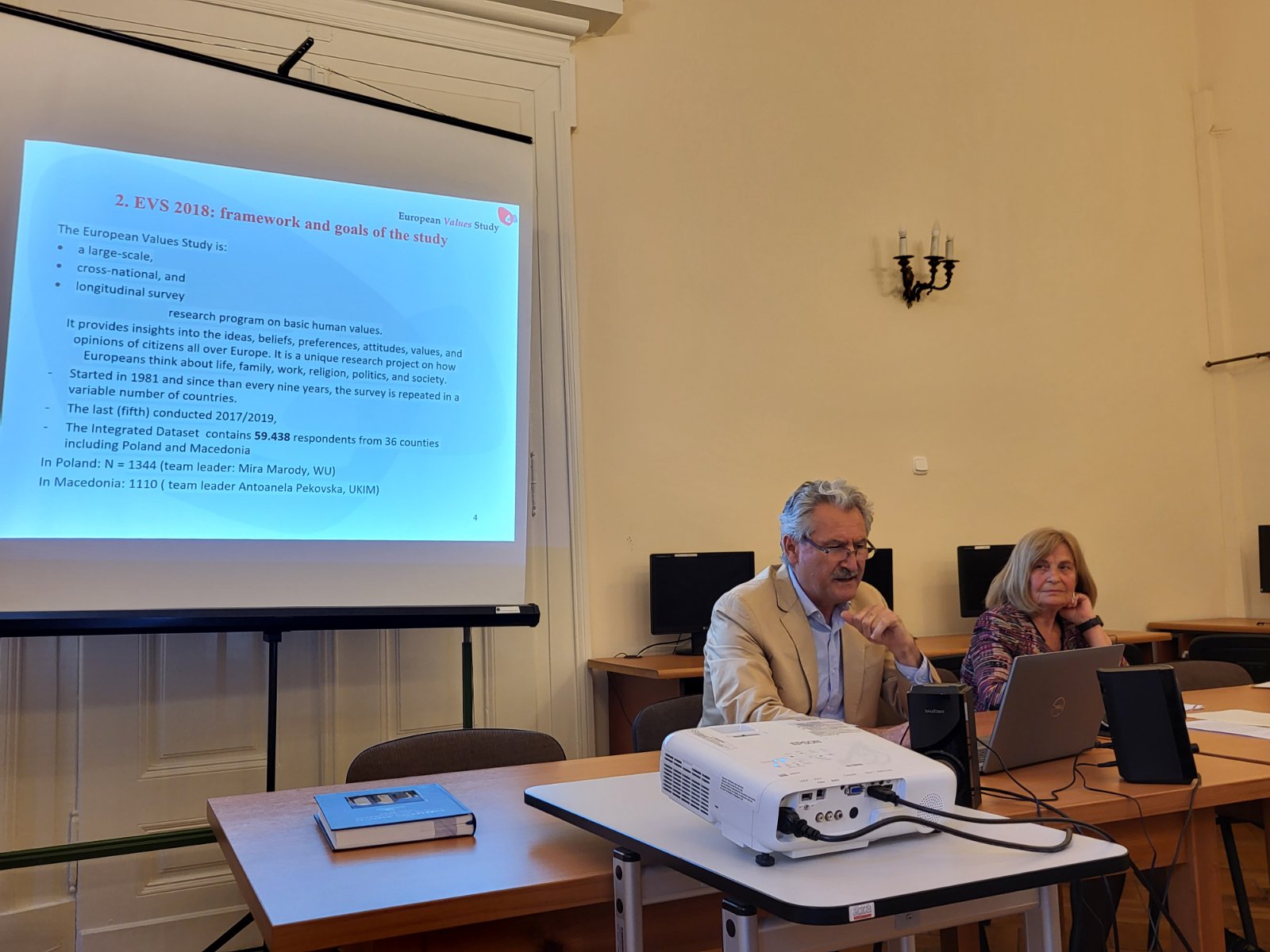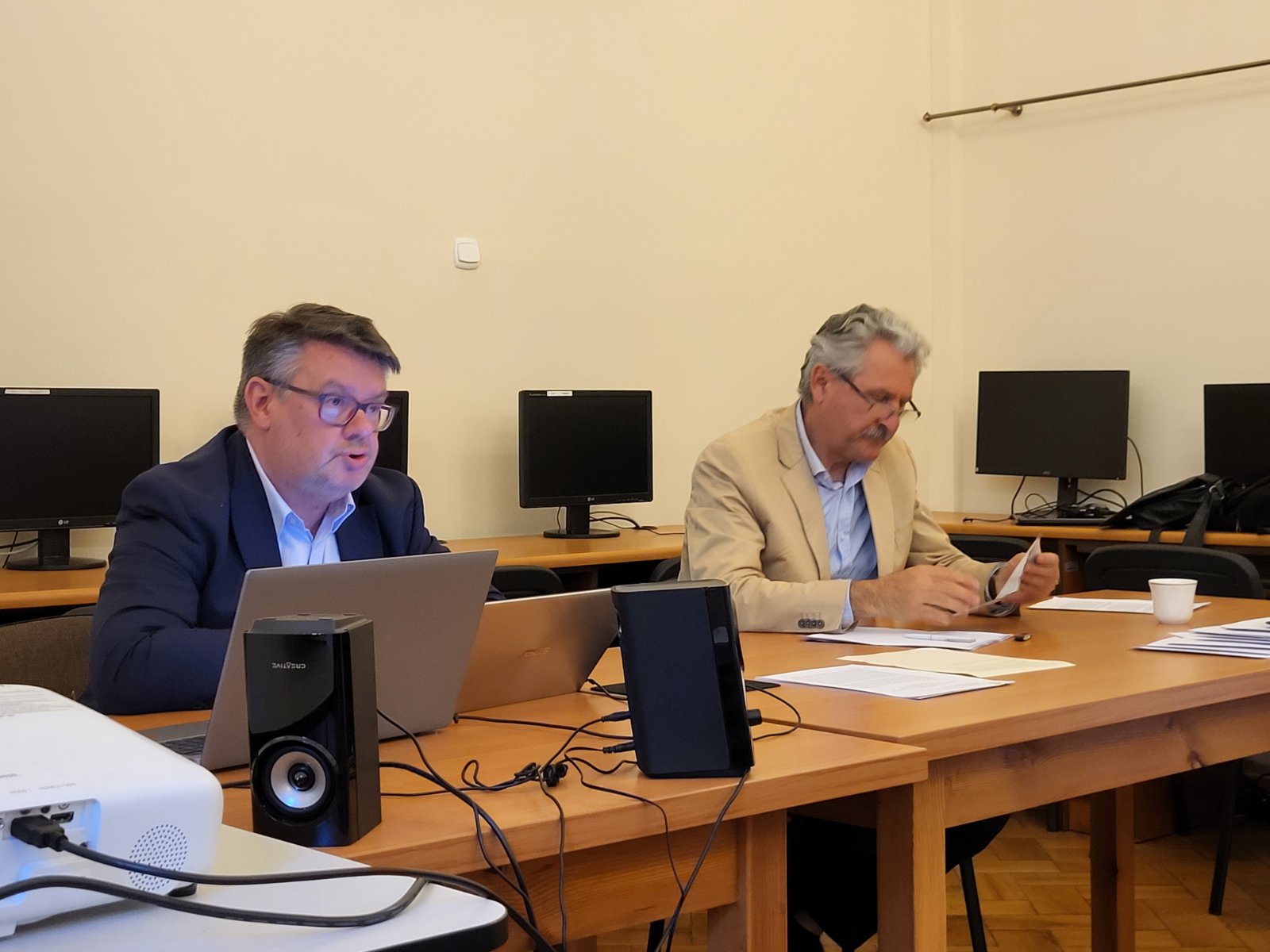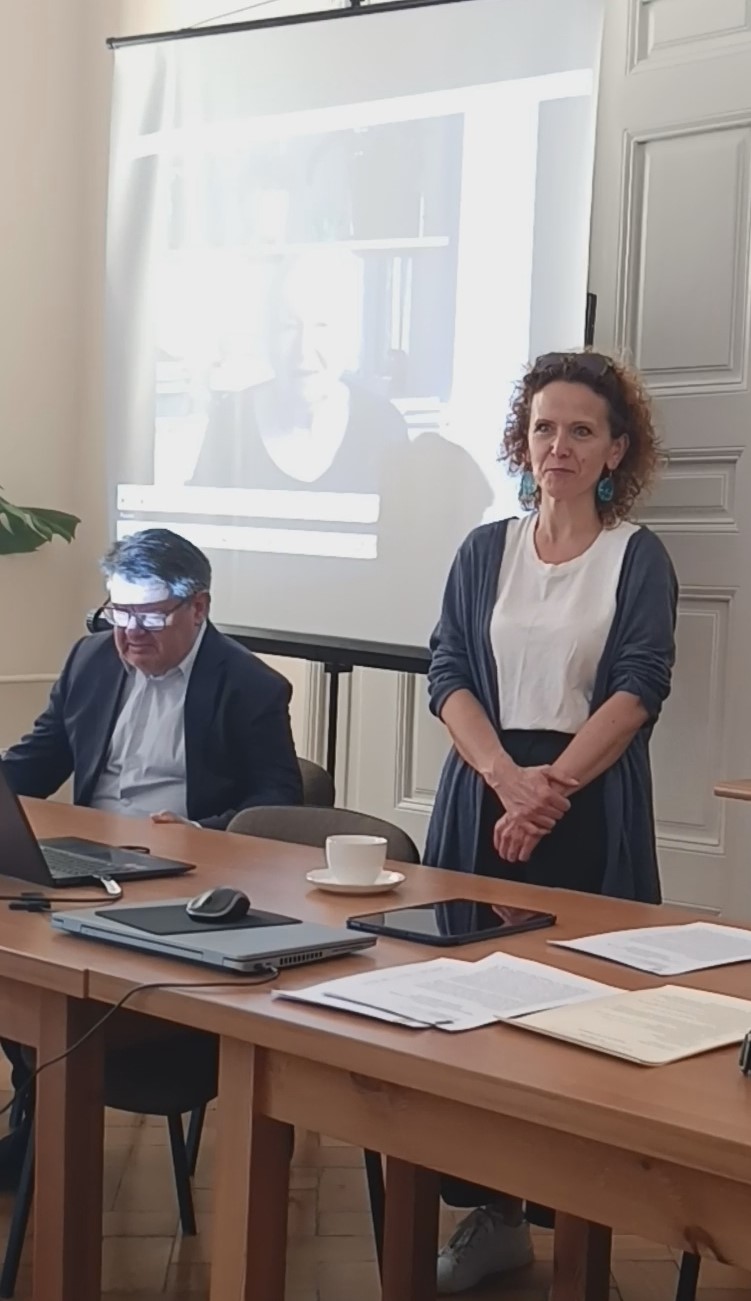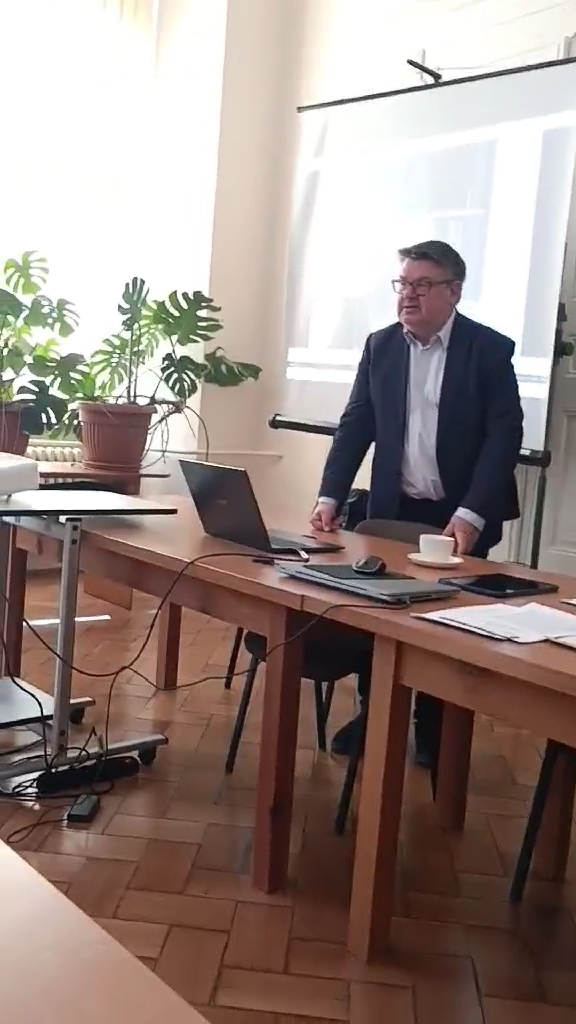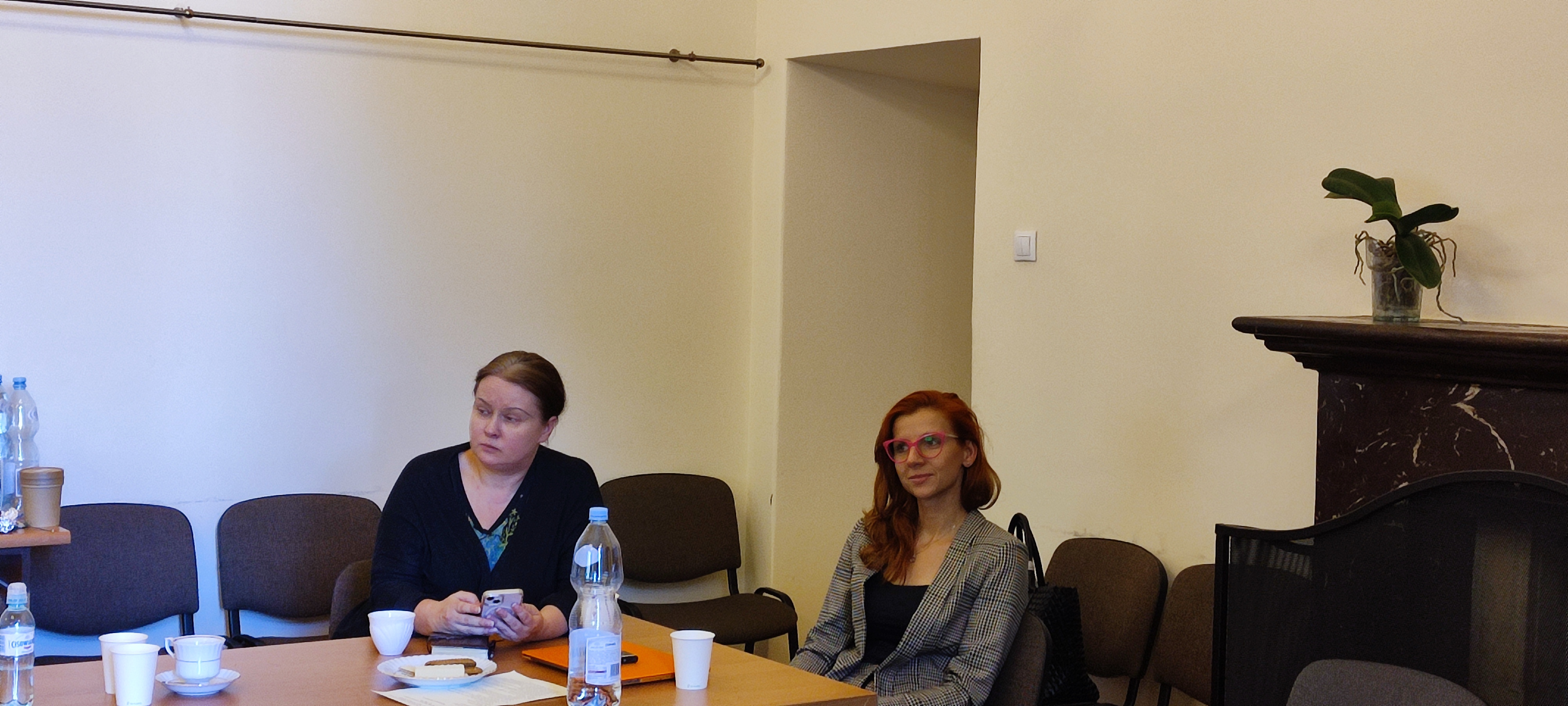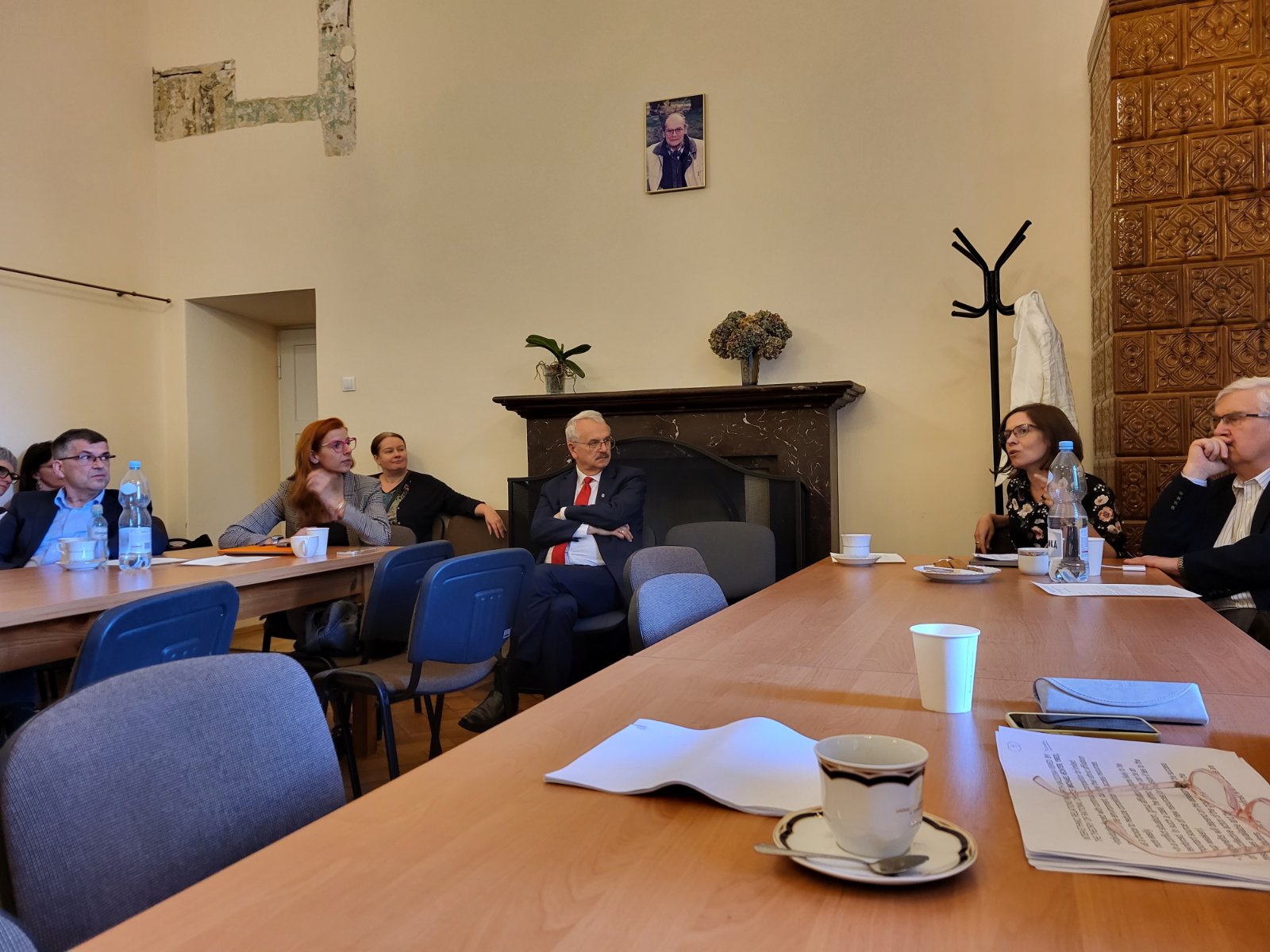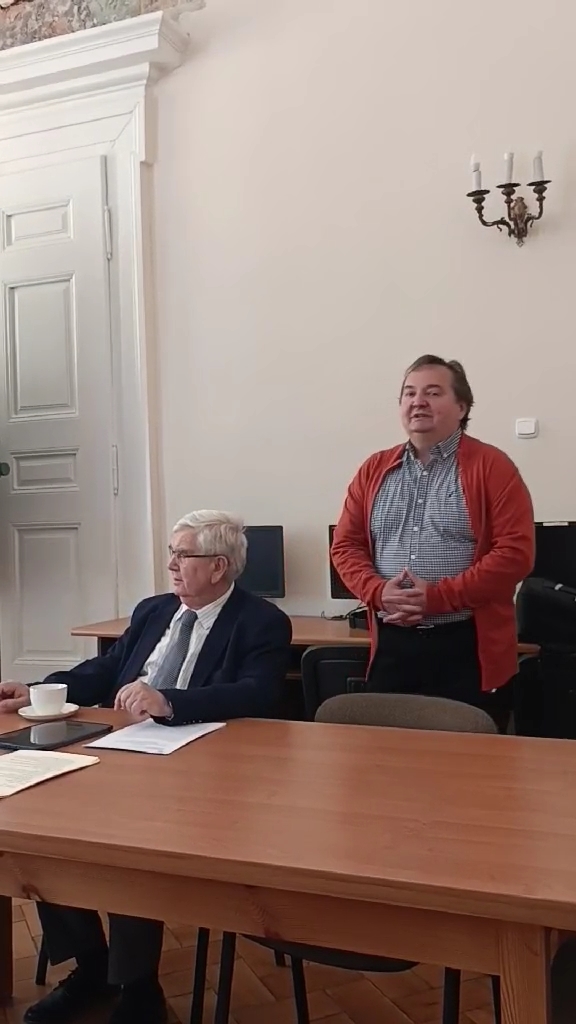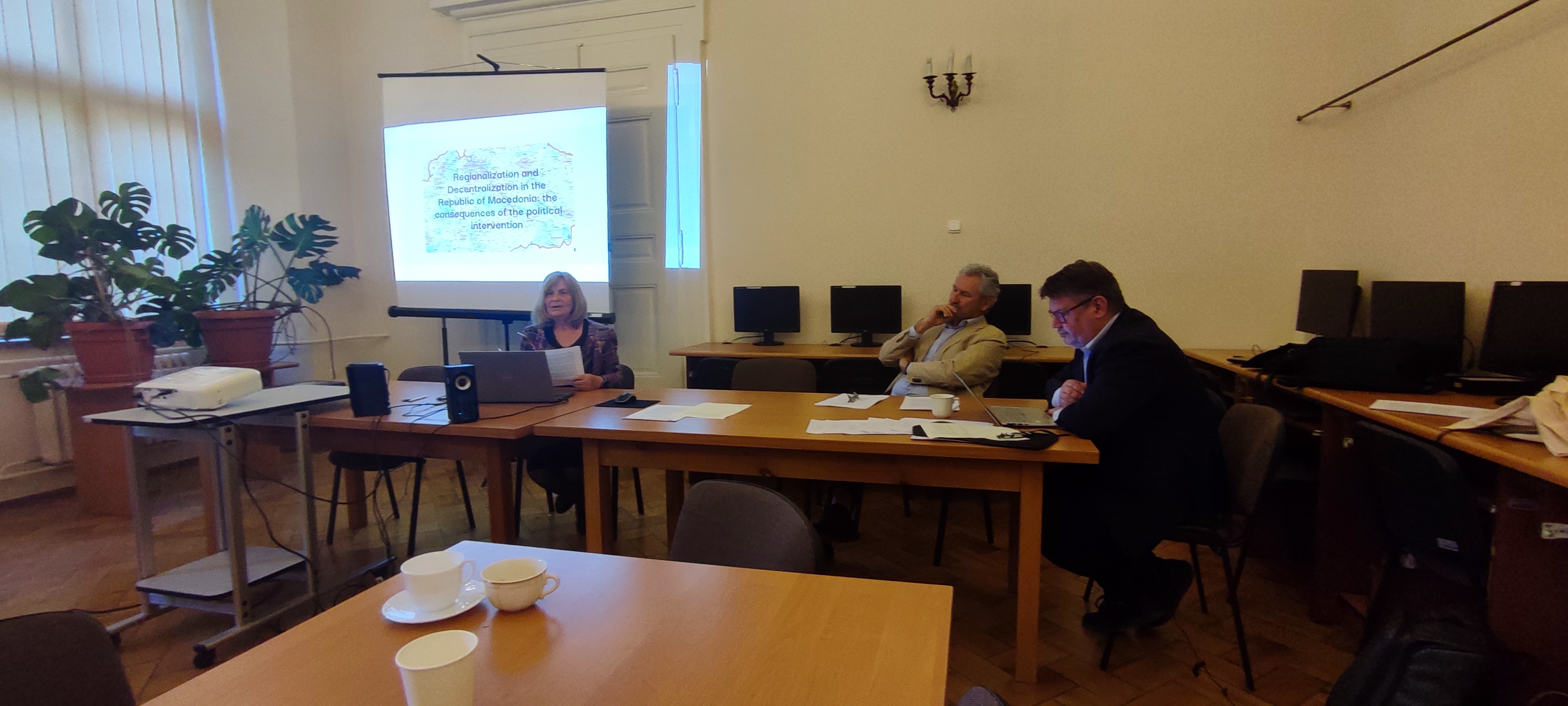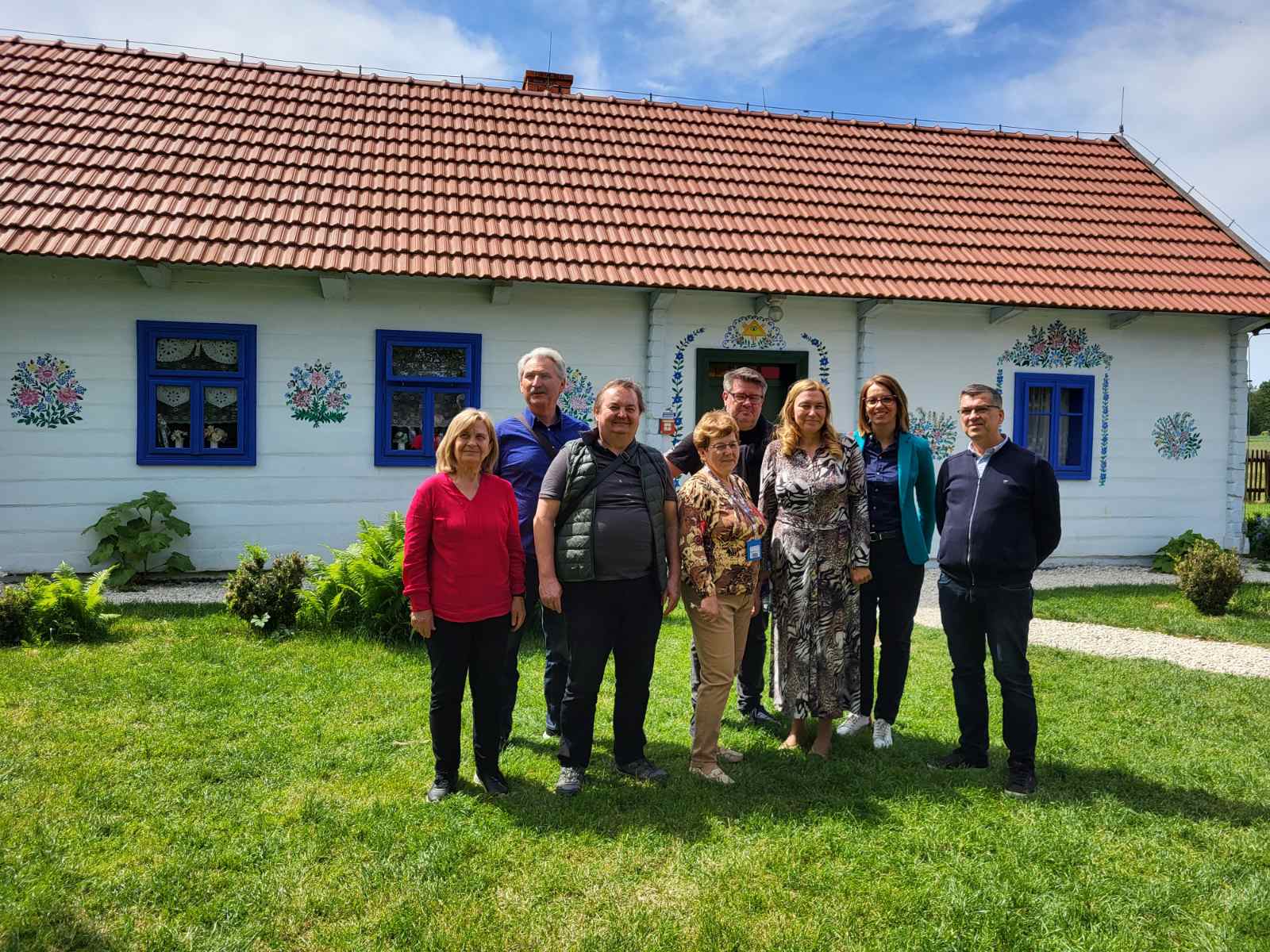
XIII KRAKOW-SKOPJE SOCIOLOGICAL SEMINAR
The XIII Krakow-Skopje Sociological Seminar was hosted at the Institute of Sociology at Jagiellonian University in Krakow on May 16 and 17, 2024. The seminar focused on the topic “From the Risk to Peril. Toward a New Condition of Social Life.” The seminar marked the continuation of the collaboration between the two Institutes of Sociology after being disrupted by the COVID-19 pandemic. This collaboration has a long history, dating back to 1979 when the first Krakow-Skopje Sociological Seminar was held. Prof. Dr Mileva Gjurovska, Prof. Dr Ilo Trajkovski, and Prof. Dr Konstantin Minoski from the Institute of Sociology of the Faculty of Philosophy in Skopje, along with vice-dean Natasa Stanojkovska Trajkovka as a representative of the Faculty of Philosophy, participated in the seminar.
On May 16, 2024, Prof. Dr Marta Smagacz-Poziemska, the Director of the Institute of Sociology, expressed her delight at the seminar’s continuation and extended best wishes to the participants for their successful endeavours. Additionally, Prof. Dr Konstantin Minoski, the head of the Institute of Sociology at the Faculty of Philosophy in Skopje, conveyed the collective satisfaction of his colleagues regarding the seminar’s resumption and collaboration with their colleagues from Krakow.
Furthermore, the Seminar received a warm welcome from Prof. Dr Natasa Stanojkovska Trajkovska, the vice-dean for finance at the Faculty of Philosophy in Skopje, who presented the Krakow colleagues with the Monograph “100 years of the Faculty of Philosophy in Skopje 1920-2020”. During this event, letters from Prof. Dr Petre Georgievski and Prof. Dr Gjorge Mladenovski were shared, and a video address by Prof. Dr Marija Tasheva from the Institute of Sociology at the Faculty of Philosophy in Skopje, celebrating the Seminar’s resumption, was broadcasted.
In the subsequent working session of the seminar, Prof. Dr Jaroslav Gurniak, the vice-rector of the Jagiellonian University and a member of the Institute of Sociology, addressed the audience and warmly welcomed the seminar’s continuation and the ongoing collaboration.
The morning session was dedicated to the 45-year cooperation of the Institutes of Sociology at the Faculty of Philosophy at the Jagiellonian University in Krakow and at the Faculty of Philosophy – Skopje at the University of St. “Cyril and Methodius” in Skopje.
The doyen of Polish sociology, Prof. Dr Marian Niezgoda, an Honorary Professor at UKIM, with Prof. Dr Petre Georgievski, presented a joint paper. Prof. Georgievski, honoured for his contributions by the Jagiellonian University, was one of the seminar’s earliest participants. The presentation provided a historical overview of the enduring scientific cooperation between the two institutes in Krakow and Skopje. It was noted that a 45-year bilateral scientific collaboration is sporadic in academia, making the Sociological Seminar of the Institutes of Sociology in Krakow and Skopje a truly unique case. The effects of the inaugural seminar are still evident today, as the Seminar has evolved into an institution with a lasting impact.
During second, the afternoon, session, four papers were presented. Anna Jastrzebiec-Witowska and Piotr Nowak from the Jagiellonian University in Krakow presented a paper titled “Food Insecure from the Beginning: social, economic, and Political Risks of the 2022 Infant Milk Crisis in the United States.” Konstantin Minoski from UKIM presented a joint paper with Antoanela Petkovska, Ilo Trajkovski, and Mihajlo Popovski titled “Trust and risk in Macedonian and Polish society,” which offered comparative results of different forms of trust and potential risks from the last wave of international research European Values Study (2017-2019). Alexandra Wagner from the Jagiellonian University in Krakow shared her thoughts on “Gender in the Energy Transition: Comments on the Challenges in Macedonia and Poland,” while Justina Kopczynska from the Institute of Sociology at the University of Warsaw and the Institute of Sociology at the Jagiellonian University in Krakow presented a paper titled “The turbulent times of the digital revolution as a context for the development of a society of tensions.”
Three more papers were presented during the third, afternoon session. Ilo Trajkovski from UKIM presented a joint paper with Konstantin Minoski, Antoanela Petkovska, and Mihajlo Popovski titled “Macedonian and Polish Citizen’s Concerns About Others in European Comparative Perspective” which provided comparative results of the forms of concern of Macedonian and Polish citizens towards certain categories of people from the last wave of the international survey European Values Study (2017-2019). Mileva Gjurovska from UKIM presented the results of her research in the paper “Regionalization and Decentralization in the Republic of Macedonia: The Consequences of Political Intervention.” Lastly, Marcin Lubas from the Jagiellonian University in Krakow presented his paper “Boundary maintenance and the management of conflict: reflections on the politics of compartmentalization”.
After the two sessions, interesting discussions developed regarding the theoretical and methodological problems of the papers, focusing on the various aspects of trust and risk in modern societies in transition that are experiencing or searching for a new state of social life.
On the second working day, May 17, 2024, a field trip was organised to Dabrova Tarnovska, which is about 100 km away from Krakow, where the Center for the Meeting of Cultures and the reconstructed synagogue were visited, as well as the library, the church and the Ethnographic Museum in Zalipie were visited. We had the opportunity to learn about the cultural patterns of rural living, especially their art and the tradition of decorating homes and household items with specific floral motifs through painting.
On this occasion, we would like to acknowledge the exceptional contributions of Prof. Dr Piotr Novak and Prof. Dr Marcin Lubash towards the continuation of the collaboration between the Institutes of Sociology at the Jagiellonian University in Krakow and the Institute of Sociology at the Faculty of Philosophy in Skopje, at the University “St. Cyril and Methodius.” Their efforts have led to the successful organisation of a seminar, which has set high standards for future cooperation.
20.05.2024, Skopje
On behalf of the participants,
Prof. Konstantin Minoski
